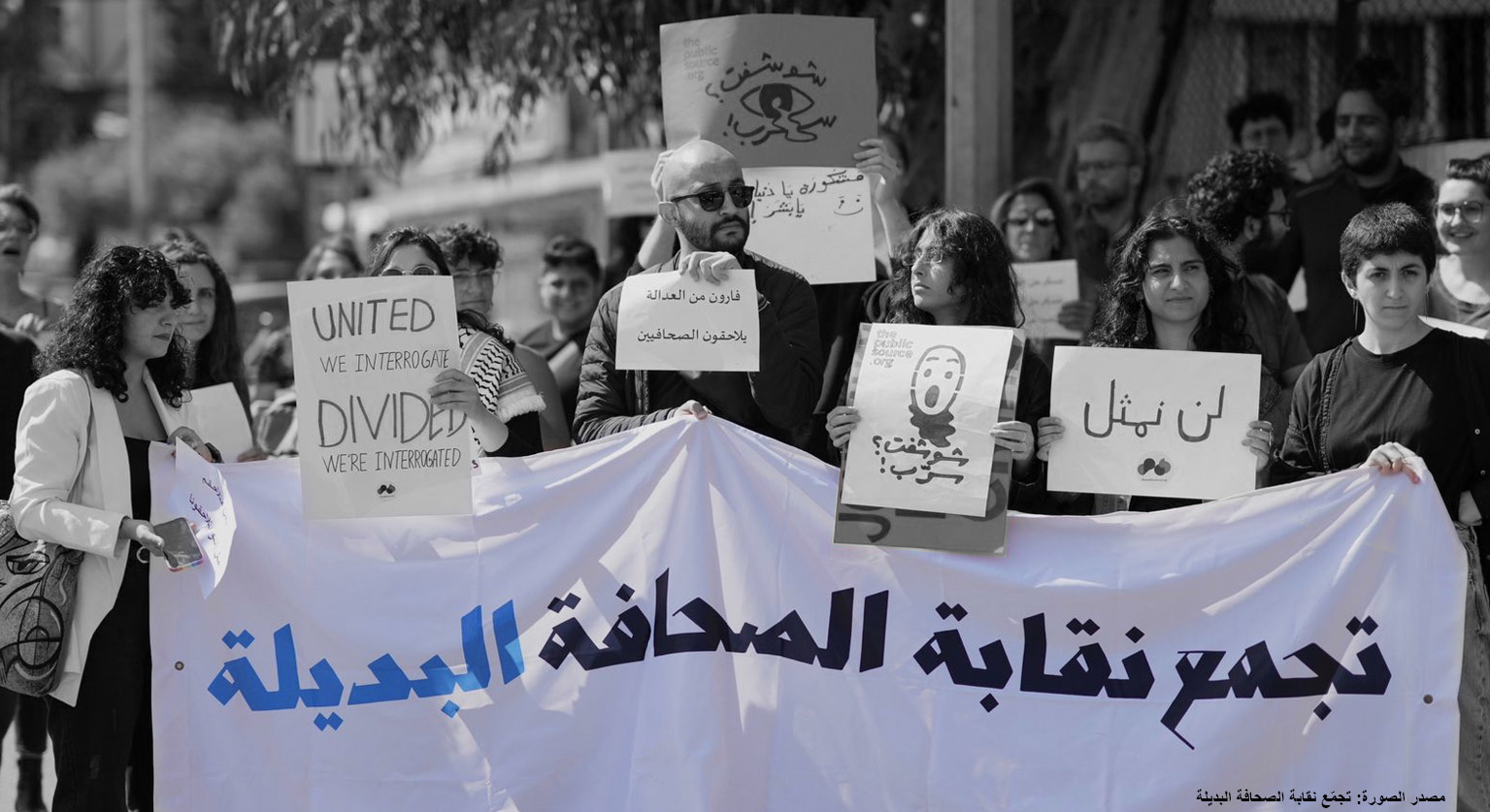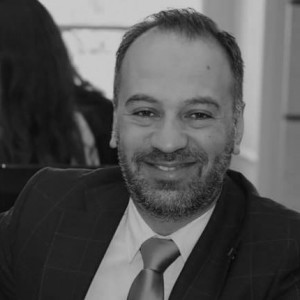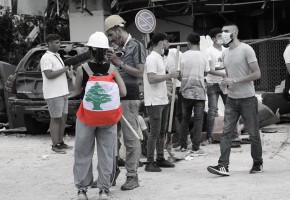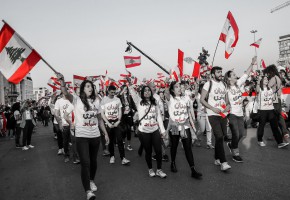

The Political Powers Strike Back - Farouk Moughrabi
More than three years have passed since the October 17 Revolution. During that time, the popular movement and revolutionary groups achieved several victories, especially regarding freedom of expression, breaking the wall of fear, and restoring some political demigods back to their human status. However, ruling political powers are attempting to regain their strengths and strike back.
The political authority, security services, and some judges and businessmen have become frightened by the phenomenon of unrestricted activist journalists who act as platforms to address people through social media. Today's primary targets are activists, especially journalists, who could influence public opinion and contribute to fighting corruption and human rights violations.
Violation of International Obligations
Restrictions against journalists and people who express their opinions violate Article 13 of the Lebanese Constitution and international agreements, especially Article 19 of the International Covenant on Civil and Political Rights, ratified by the Lebanese government under Decree 3855 of 1/9/1972.[i] They also violate Article 2 of UNESCO's 1978 declaration on the media's contribution to supporting world peace and international understanding, promoting human rights, and combating racism and incitement.[ii]
In its concluding observations to the Lebanese state on 9/5/2018, the UN Human Rights Committee expressed concerns regarding practices leading to the restriction of freedom of expression.[iii] However, these remarks were issued before the October 17 Revolution and the grave violations that followed.
According to Human Rights Watch, freedom of expression in Lebanon is under attack.[iv]
Similarly, Amnesty International said that libel laws are being used to stifle freedoms. Activists are also being tried before the military court, as in the recent case against the stand-up comedian Shaden Fakih.[v]
The law does not protect the freedom of the press
Journalists are subject to the Publications Law of 9/14/1962, as amended by Legislative Decree 104 of 6/30/1977 and Law 330/1994. However, the Publications Law is in conflict with press and media freedoms and does not provide the minimum requirements for a fair trial. Moreover, the Publications Court enjoys an exceptional status where litigation takes place on two levels.
The Public Prosecution Office tends to ignore the Publications Law, referring cases to the Cybercrime Office or other security agencies, such as State Security. There, journalists may face detention and are pressured to remove publications and sign a pledge. The violation of Articles 29 and 30 of the Publications Law is evident, especially since it stipulates that a publications lawsuit requires an investigation, "the investigating judge shall carry it out."
The Cybercrime office demands that anyone summoned to an investigation show their Editors Syndicate membership card. In the event they have one, they are referred to the public prosecutor. However, this condition cannot apply to all journalists due to the total political control of the Syndicate, which decides who is a journalist and who is not. The same syndicate filed a lawsuit against the Alternative Press Union before the Judge of Urgent Matters in Baabda to prevent the Union from using any form of media (TV, radio, and electronic) on Lebanese territories. In particular, the lawsuit wants to prohibit the Union from publishing any news, statements, or articles under the penalty of a fine paid by all its members. However, freedom of expression triumphed in the courts, which issued a decision based on international agreements and rejected the request.[vi]
Systematic Summons
Systematic efforts to suppress freedoms by summoning journalists are underway. One example is Judge Ghassan Oweidat’s claim against journalist Jean Kassir, referring his file to State Security, known for its repeated human rights violations.[vii] Another example involved journalist Lara Al-Bitar before the Cybercrime Office, based on a lawsuit by the Lebanese Forces Party regarding an article published by the website Public Source.[viii]
The good news is that the strike failed. Kassir did not appear before State Security, and Bitar was not interrogated by the Cybercrime Office due to the show of solidarity by journalists and activists, especially the Alternative Press Union.
The Bar Association violates human rights
In a disturbing development, the Code of Ethics of the Legal Profession was amended in clear violation of the international human rights law. The amendments restricted their freedom of expression and encroached on their space on social media. The amended Article 39[ix] prohibits lawyers from discussing major public issues without the prior approval of the Bar Association. Furthermore, Article 41[x] now obliges lawyers to obtain prior permission from the Bar Association, by any means available, before appearing in a seminar or interview of a general legal nature organized through the media, social media, websites, or groups. The application must include the time and name of the outlet "in a language very similar to the notification presented to the Interior Ministry for demonstrations."
A case in point is when the Bar Association summoned the lawyer Nizar Saghieh and others for interrogation. It was obvious the question was of restricting freedoms, especially after Saghieh's harsh criticism of the amendments, which he considered an infringement of a natural right, the right to expression, and an attempt to restrict a group of activist lawyers who disturb the political authorities and the whole system. Saghieh had filed an appeal against the amendment before the Civil Court of Appeals in Beirut.[xi]
The current historical stage imposes a great responsibility to fight to the last breath in defending the freedom of expression.
Farouk Moughrabi
References
[i] https://www.ohchr.org/ar/instruments-mechanisms/instruments/international-covenant-civil-and-political-rights
[ii] https://hritc.co/wp-content/uploads/2020/06/2AD11.pdf
[iii]https://tbinternet.ohchr.org/_layouts/15/treatybodyexternal/Download.aspx?symbolno=CCPR%2FC%2FLBN%2FCO%2F3&Lang=en
[iv] https://www.hrw.org/news/2021/05/04/freedom-speech-lebanon-under-attack
[v] https://www.amnesty.org/en/location/middle-east-and-north-africa/lebanon/report-lebanon/
[vi] https://www.alaraby.co.uk/entertainment_media/%D9%82%D8%A7%D8%B6%D9%8D-%D9%84%D8%A8%D9%86%D8%A7%D9%86%D9%8A-%D9%8A%D9%86%D8%AA%D8%B5%D8%B1-%D9%84%D8%AD%D8%B1%D9%8A%D8%A9-%D8%A7%D9%84%D8%AA%D8%B9%D8%A8%D9%8A%D8%B1-%D9%88%D9%8A%D8%B1%D9%81%D8%B6-%D8%AD%D8%B8%D8%B1-%D9%86%D8%B4%D8%A7%D8%B7-%D9%86%D9%82%D8%A7%D8%A8%D8%A9-%D8%A7%D9%84%D8%B5%D8%AD%D8%A7%D9%81%D8%A9-%D8%A7%D9%84%D8%A8%D8%AF%D9%8A%D9%84%D8%A9
[vii] https://www.almodon.com/media/2023/3/31/%D8%A3%D9%85%D9%86-%D8%A7%D9%84%D8%AF%D9%88%D9%84%D8%A9-%D9%8A%D8%B3%D8%AA%D8%AF%D8%B9%D9%8A-%D9%85%D9%8A%D8%BA%D8%A7%D9%81%D9%88%D9%86-%D8%A8%D8%B3%D8%A8%D8%A8-%D9%85%D9%82%D8%A7%D9%84-%D8%AA%D9%86%D8%A7%D9%88%D9%84-%D8%B9%D9%88%D9%8A%D8%AF%D8%A7%D8%AA
[viii] https://twitter.com/NakabaBadila/status/1644344580995702789?ref_src=twsrc%5Etfw
[ix] Article 39 after amendment: "Lawyers shall refrain from using any means of media, advertisement, and communications, whether visual, audio, or written, including social media, electronic websites, pages, and networks of all kinds, as a platform for speech, research, or discussion in cases pending before the judiciary, entrusted to them or to other lawyers. Pleading and defending before the competent judicial references.
With the exception of major issues of community concern, after obtaining the approval of the President.
[x] The first paragraph of Article 41 after the amendment: "Lawyers must obtain permission from the Bar Association, by any means available, prior permission to participate in a seminar or interview of a general legal nature organized by any of the media, social media, websites or groups, provided that they specify in their request its time, subject, and name."
[xi]https://legal-agenda.com/%d8%a2%d8%af%d8%a7%d8%a8-%d8%a7%d9%84%d9%85%d8%ad%d8%a7%d9%85%d9%8a%d9%86-%d8%aa%d9%87%d8%af%d9%91%d8%af-%d8%ad%d8%b1%d9%91%d9%8a%d8%a7%d8%aa%d9%87%d9%85-%d9%88%d9%85%d8%b9%d9%87%d8%a7-%d8%a7/
Recent publications

Thematic Report: Exploiting Resources, Ignoring Rights: A Political Ecology of Water and Energy in the Arab World
Related publications


